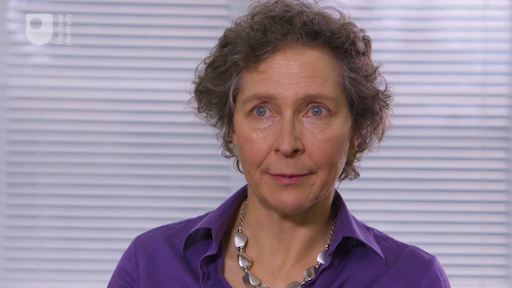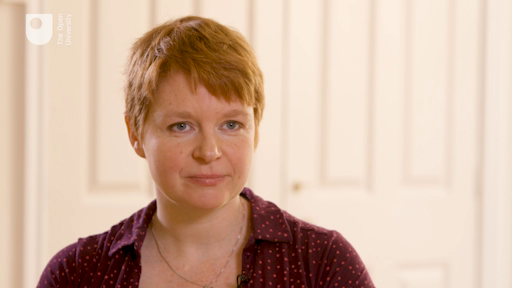2 Making a difference at work
Paying attention to your personal brand at work can have an impact in two key areas:
- a.You are better prepared to present a clear message to others about who you are and what you have to offer.
- b.Colleagues, peers and employers will have a clear understanding of what they can gain from working with you.
Sometimes, you might want to boost your personal brand image in the workplace because you are facing a challenging situation and want to demonstrate that you can deal with it. Business Image Consultant, Jane Chapman, explains how having the right image can enhance your confidence and authority.

Transcript: Video 3 Interview with Jane Chapman
The following case studies illustrate some of the benefits of a clear personal brand.
Leya and her unexpected opportunity
Leya had been working as a careers adviser for five years, when her boss suggested she might like to try managing a department for a few months while a colleague was seconded elsewhere. Management was not something Leya had ever considered but her boss was sure she would excel. She accepted the offer and found that she really enjoyed the role. She is now the Director of a large careers service.
Leya’s manager offered her this opportunity because she had developed a clear personal brand within the organisation. She was known for her strong interpersonal skills and her ability to motivate and encourage others. While she hadn’t deliberately cultivated a brand, by being open and honest in all her interactions with colleagues and clients, her personal brand was authentic and clear for all to see.
Linda and her successful job interview
Linda had been a manager for several years when she saw an opportunity to try something new. She applied for a job that seemed to require her skillset, but included oversight of many operational areas that she knew little about.
If the organisation wanted someone to lead on operational detail, she knew she wouldn’t be a strong contender, but she was invited to interview. At the interview, she decided to be clear about who she was and what she could offer, rather than apologising for the gaps in her knowledge and experience. She focused on her track record of working with a wide range of different people, bringing them together and building effective teams. She got the job!
Linda was successful because the authentic brand she communicated in her interview was exactly what the employer was looking for. What she didn’t know was that there had been significant personnel issues prior to her appointment and the team was fractured and aimless. By presenting her brand clearly and confidently, Linda convinced the employer that she was the perfect person to sort that out.
Philip and his social media marketing
When Philip left a senior role to start a freelance career, he wanted to let the right people know he was available for work. He took some time to develop a website, thinking carefully about how he wanted to present himself, and then he switched his focus to social media. Focusing mainly on LinkedIn and Twitter, he then started regularly posting thoughts and ideas, commenting on other material, etc. This was something he had always done anyway, but now he was doing it more deliberately – carefully considering the comments he made and how they might be perceived by potential employers, and ensuring they were regular and timely. Offers of work followed!
Philip used social media to promote his personal brand, but he was thoughtful about what he posted. For him, this wasn’t about collecting followers or setting a target to send five tweets a day. He wanted the right people to notice and remember him – for the right, professional reasons. Once he had created an effective and valued personal brand, he was able to start approaching some of his followers directly, with ideas about how he could help them and their organisations. His pitches were well received as his reputation was already strong.
Gayle Johnson is a self-employed copywriter and coach, who took a more deliberate approach to defining her own personal brand at work. Watch this short video to hear why she decided to do this and how it helped her career.

Transcript: Video 4 Interview with Gayle Johnson
Activity 2 How could personal branding help me at work?
Think about your current work situation. How is your personal brand working for you at the moment? Has it brought you any unexpected opportunities like it did for Leya?
You’ll look in much more detail at how to develop your personal brand later in the course, but for now, choose one thing that you are happy with and one thing you’d like to improve about it. Write your thoughts in the box below. You might find it helpful to reflect on your answers to Activity 3 [Tip: hold Ctrl and click a link to open it in a new tab. (Hide tip)] in Week 1.
Throughout the course there is the option ‘Download your answers for the documents on this course’ on the left hand side. This will produce a PDF document of all of your answers to the activities for you to refer back to as needed.
Discussion
Leya didn’t consciously develop a personal brand at work, but others recognised it because of her consistent actions and behaviour.
Gayle had a very clear idea of why a strong personal brand was important to her and developing it helped her to feel more authentic in the workplace, enhancing her personal job satisfaction and professional relationships.
Activity 3 in Week 1 might have given you a sense of how your brand is currently perceived by others. If it has, you can start to consider if there’s anything you want to alter or enhance. For example, you might want to promote a particular strength or set of values more strongly, or you might simply want more people to know and recognise your brand.
Throughout the course, you’ll explore ways to make both of those things happen.
Now you’ve had a taste of how personal brand can make a difference to ordinary people in the workplace, you’ll move on to look briefly at how celebrities use their personal brands and consider what we can learn from their approaches.
